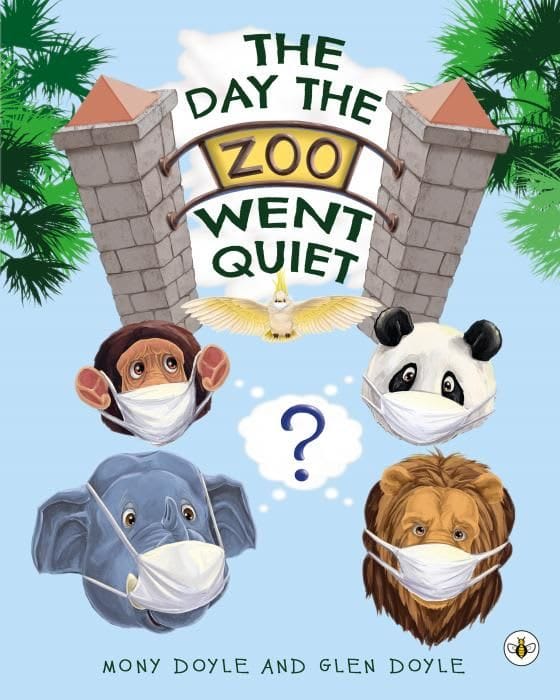Family project helps children cope with lockdown
A Frankston family has developed a novel way to help children cope with lockdown.

BY CHLOE CHIAPPA
A Frankston family has turned their beloved bedtime story into a published children’s book inspired by the events of the coronavirus pandemic, helping children worldwide cope with the stress of isolation.
The Day the Zoo Went Quiet was released worldwide in bookstores and online on April 29 after parents Glen and Monica Doyle wrote the story during last year’s stage four hard lockdown.
The married couple said the purpose of the tale was to help their children Aidan, 10, and Anya, 6, understand and manage their pandemic experience.
“I said 'well, why not have something to help them cope with what’s going on, because there’s not much out there in that everything is so new with the [pandemic]',” Mrs Doyle said.
“We also felt that all we ever saw on the news was everybody just reinforcing we’re all in this together, we’re all in this together but there was no real coping mechanism for anybody. That’s not enough for kids,” Mr Doyle said.
The book follows the experiences of five zoo animals as they navigate pre, mid and post-lockdown life.

Initially only a bedtime tale, the concept quickly evolved into a “family project” which the family said had many positive effects on their mental wellbeing.
The couple agreed it helped validate their children’s emotions of confusion and uncertainty, reassuring them they were not alone and there was “light at the end of the tunnel”.
“You could see that by talking about the animals, they were actually bringing out things about themselves, so that really helped,” Mrs Doyle said.
“It did open that line of dialogue between us and them, they felt comfortable talking to us.”

Mr Doyle said this inspired them to take the story more seriously and think about the benefits of publishing the book for other children to read.
Lecturer in Educational Psychology and Inclusive Education at Monash University, Sophie Lea said The Day the Zoo Went Quiet is “a brilliant concept”.
“I thought that was really a great, accessible way of opening up and talking about a topic with young people who might be feeling incredibly anxious, fearful, confused about what’s happening in our world currently,” Ms Lea said.

Research shows a strong connection between mental health and reading for young people.
Ms Lea published recommendations around supporting children during home-based isolation last year.
Among them was initiating storytime as an opportunity to bring young people to a different emotional headspace, with particular importance during the stressful days of lockdown.
“Social stories have been proved to be very beneficial in regard to learning and preparing children for certain experiences,” Ms Lea said.
“When young people are experiencing isolation and exclusion these books can be incredibly powerful in helping them feel less alone and helping them feel understood.”
Mr and Mrs Doyle included links to children’s mental health resources on their website to help raise awareness on maintaining mental wellbeing from a young age.
“Resilience is always a word that pops out and that’s what we wanted to show in the book in the end: hope and resilience and understanding,” Mrs Doyle said.





